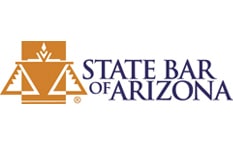Collateral Consequences of Criminal Convictions
In December 2016, the American Friends Service Committee-Arizona published a report entitled A New Public Safety Framework for Arizona: Charting a Path Forward that discussed collateral consequences of criminal convictions. “Collateral consequences” are legal punishments and other restrictions imposed on people because of their criminal convictions. They are in addition to any term of incarceration, fines, fees or supervision imposed by the courts as punishment for the crimes. As Gabriel Chin wrote in “The New Civil Death: Rethinking Punishment in the Era of Mass Conviction”:
 “As a practical matter, every criminal sentence contains the following unwritten term: The law regards you as having a “shattered character.” Therefore, in addition to any incarceration or fine, you are subject to legal restrictions and limitations on your civil rights, conduct, employment, residence, and relationships. For the rest of your life, the United States and any State or locality where you travel or reside may impose, at any time, additional restrictions and limitations they deem warranted. Their power to do so is limited only by their reasonable discretion. They may also require you to pay the expense of these restrictions and limitations.”
“As a practical matter, every criminal sentence contains the following unwritten term: The law regards you as having a “shattered character.” Therefore, in addition to any incarceration or fine, you are subject to legal restrictions and limitations on your civil rights, conduct, employment, residence, and relationships. For the rest of your life, the United States and any State or locality where you travel or reside may impose, at any time, additional restrictions and limitations they deem warranted. Their power to do so is limited only by their reasonable discretion. They may also require you to pay the expense of these restrictions and limitations.”
The American Friends Committee report noted:
“The American Bar Association has identified 886 collateral consequences in the state of Arizona. These include possible exclusion from or denial of professional licenses in such fields as pest management, morticians/embalmer, athletic trainer, insurance, motor vehicle dealer, real estate, security guard, cosmetology, interpreter, firefighter, hazardous waste disposal, and a variety of healthcare-related fields.
. . .
The end result is that our policies and practices essentially guarantee recidivism. Collateral consequences prevent individuals with criminal convictions from doing what we as a society claim we want them to do—rehabilitate themselves, get jobs, and become stable, contributing members of society. Collateral consequences set people up to fail. For example, a person just released from prison on supervision will likely be required to find housing and a job within a certain period of time. He will also be expected to pay a fee for his supervision, drug testing, and other required activities (drug treatment, anger management, etc.). But because of the felony conviction on his record, he cannot find work. He is unable to pay his fees on time, and is charged a late fee, which he is also unable to pay. After a certain amount of time without finding work or paying his fees, he may be revoked back to prison for violating the terms of his release. For those without supervision, the struggle to obtain employment and safe, stable housing is just as difficult. Lacking reliable transportation, affordable childcare, and other supports many of us take for granted, the stress can lead to relapse into substance abuse, and a slide back into criminal behavior.”
The collateral consequences of criminal convictions in Arizona are wide ranging and serious. Defense attorney Gary Rohlwing has decades of experience in helping clients mitigate the collateral consequences of their criminal convictions. Call or e-mail him today.







